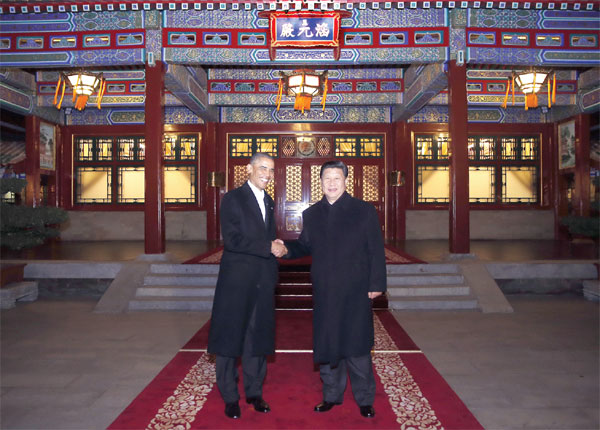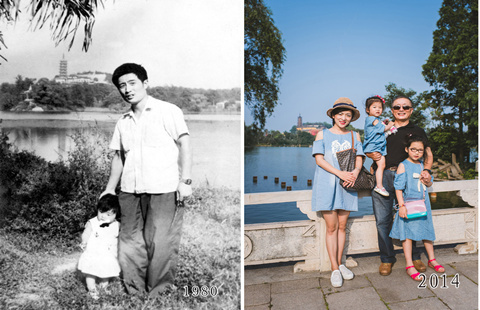Managing differences key to US-China ties
Updated: 2015-02-09 08:04
(China Daily)
|
||||||||
 |
|
Chinese President Xi Jinping shakes hands with US President Barack Obama at the Zhongnanhai leadership compound on Tuesday night in central Beijing after the APEC meeting. [Photo/Xinhua] |
The invitation the US government has extended to President Xi Jinping for a state visit, and the similar invitations extended to major Asian countries, which were announced by US National Security Adviser Susan Rice on Friday, has been viewed by some as a signal of United States deepening its "pivot to Asia."
Although the details of President Xi's visit are yet to be announced, a meeting between the leaders of the biggest developed country and the biggest developing country always catches the attention of many, not just in the two countries concerned, but also in the rest of the world.
This is because how the bilateral relations between the two countries develop is not just in the interests of both, it is also in the interests of world peace and development, and because US-China relations have long been characterized by differences on some major issues, which have disrupted the smooth development of ties over the past several decades.
On the question of the US' arms sales to Taiwan, on the question of the Dalai Lama, (who attended a National Prayer Breakfast last week, along with US President Barack Obama, who delivered a speech), on China's disputes with some countries in the South China sea over territorial waters, China and the US have different stands.
However, these differences, even though some of them concern the core interests of China or the US, should never stand in the way of improving bilateral relations, which, to a large extent, transcend the interests of both countries alone, given the responsibility both countries share to maintain world peace and development.
The US' "pivot to Asia" has intensified some of its differences with China, although the latter has reiterated on different occasions that it welcomes the US' presence in Asia, so long as it is not meant to cause trouble for the integration of Asia or for China's peaceful development of its amiable relations with its neighbors.
To a large degree, how to manage differences is always a topic high on the agenda of any meeting between the leaders of China and the US, as their relations cannot develop without interruptions should both not be aware of where to toe the line so as not to infringe upon each other's core interests.
The atmosphere of a relaxed stroll Xi Jinping and his US counterpart enjoyed in the Zhongnanhai Compound in Beijing in September last year is what we expect will help this visit to further China-US ties.
- Asian American employment data are now seasonally adjusted
- China seeks compensation from Mexico after high-speed project suspended
- Brazil in 'eclipse', China 'shines': Expert
- China to build two nuclear power plants in Argentina
- Sri Lanka in U-turn on port project
- Russia expresses optimism about solution to Ukraine issue
Most Viewed
Editor's Picks

|

|

|

|

|

|
Today's Top News
Venezuela's economic woes to continue: Panel
China seeks compensation from Mexico after high-speed project suspended
China to build two nuclear power plants in Argentina
Xi plans to make state visit to US
Trade numbers take big hit in January
Search continues for 3 missing in TransAsia crash
Beautiful girl loses battle with cancer
Three more H7N9 cases reported in China's Guangdong
US Weekly

|

|
















